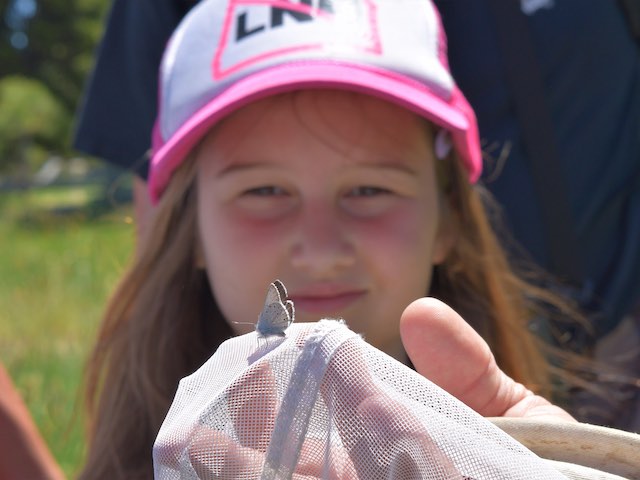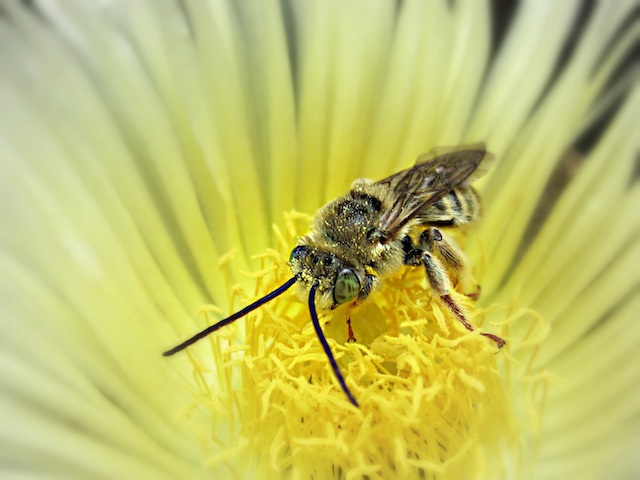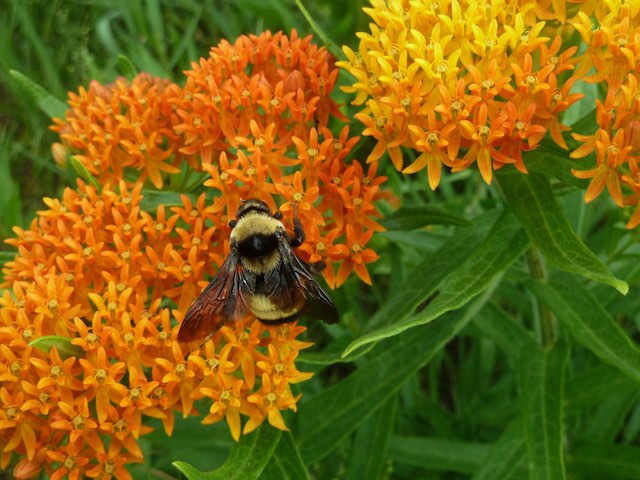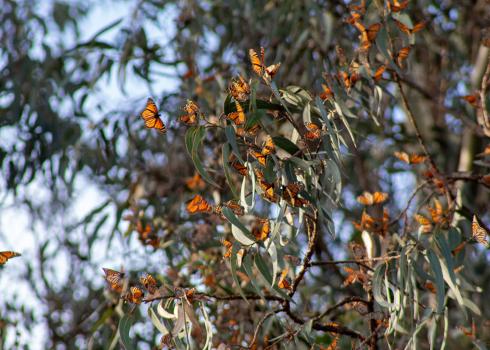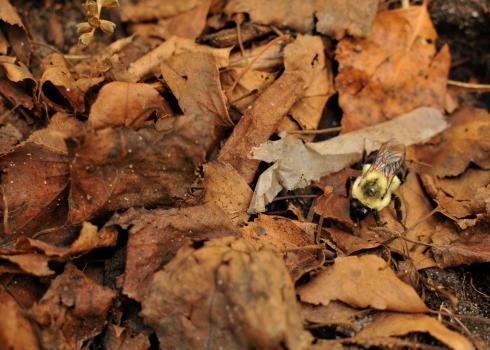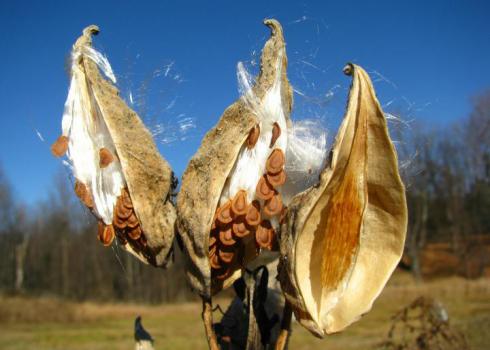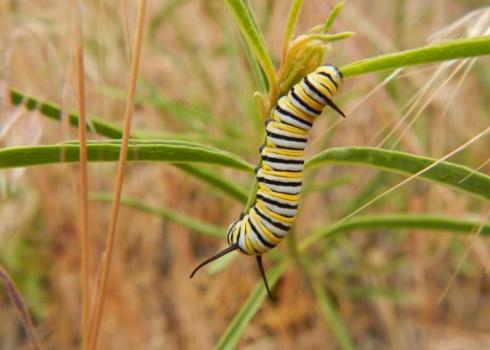Pollinators are essential to our environment. The ecological service they provide is necessary for the reproduction of over 85% of the world’s flowering plants, including more than two-thirds of the world’s crop species. The United States alone grows more than 100 crops that either need or benefit from pollinators, and the economic value of these native pollinators is estimated at $3 billion per year in the U.S. Beyond agriculture, pollinators are keystone species in most terrestrial ecosystems. Fruits and seeds derived from insect pollination are a major part of the diet of approximately 25% of all birds, and of mammals ranging from red-backed voles to grizzly bears.
Unfortunately, in many places, the essential service of pollination is at risk from habitat loss, pesticide use, and introduced diseases. Follow the links below to learn more about these vital insects, the Xerces Society's pollinator conservation work, and how you can help.
We offer free pollinator habitat kits to eligible partners across the United States! Please visit our Xerces Society Habitat Kit Program webpage to learn more.
Sign the Pollinator Protection Pledge
The pollinator protection pledge is based on four simple principles: Grow pollinator-friendly flowers, provide nest sites, avoid pesticides, and spread the word. These core values apply equally to urban community gardens, suburban yards, city parks, and farms—making them possible to implement anywhere, anytime!
Find Pollinator Conservation Resources
The Pollinator Conservation Resource Center provides region-specific plant lists, habitat establishment guides, local seed vendors, and more—all the information necessary to create effective pollinator habitat!
For Farmers & Food Companies: Bee Better Certified
Bee Better Certified® partners with farmers and food companies to conserve bees and other pollinators in agricultural lands. Our work advances more resilient pollinator populations and sustainable crop production.
For Communities & Campuses: Bee City USA & Bee Campus USA
Bee City USA and Bee Campus USA galvanize communities to sustain pollinators by providing them with healthy habitat, rich in a variety of native plants, and free to nearly free of pesticides.
Understanding Pesticides
Learn about the risks to pollinators and other invertebrates, and find alternatives.

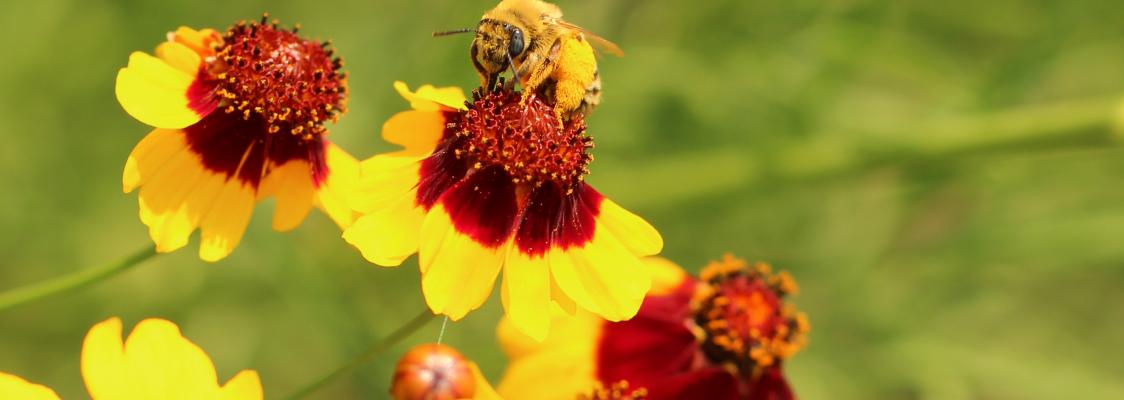
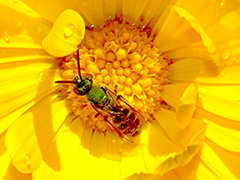
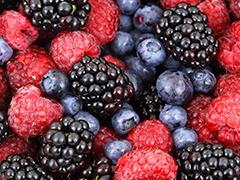
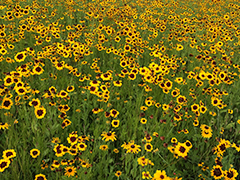
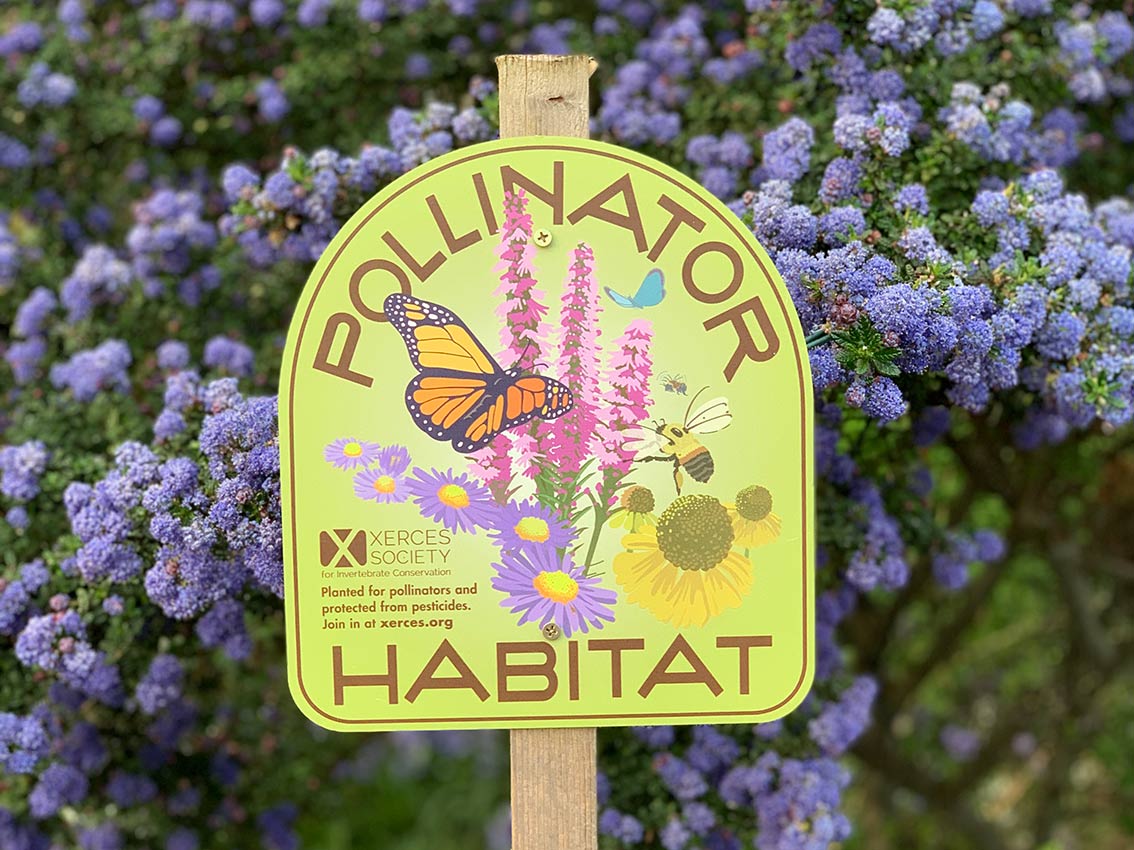

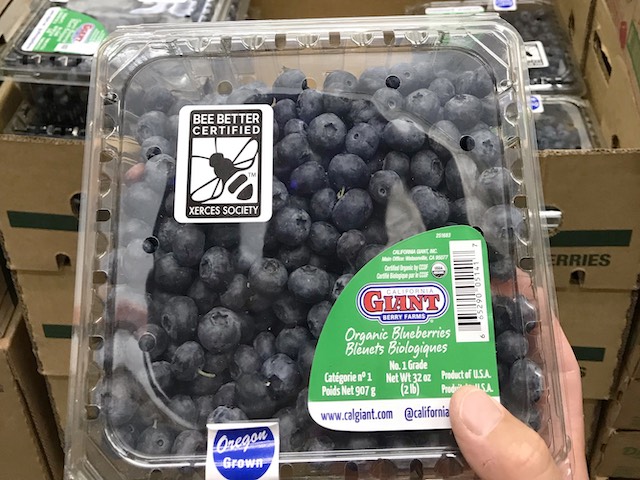
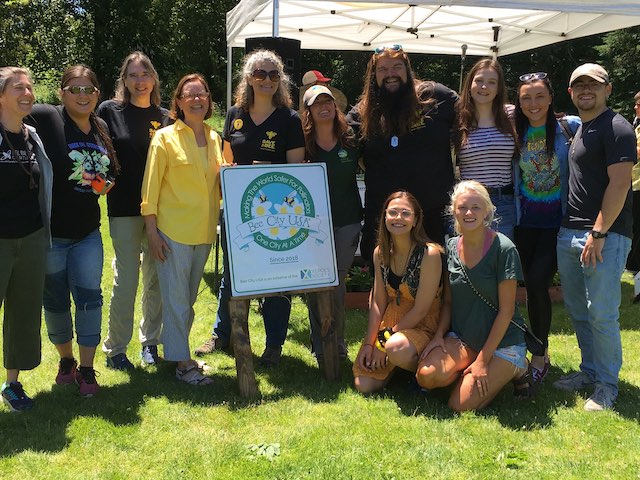
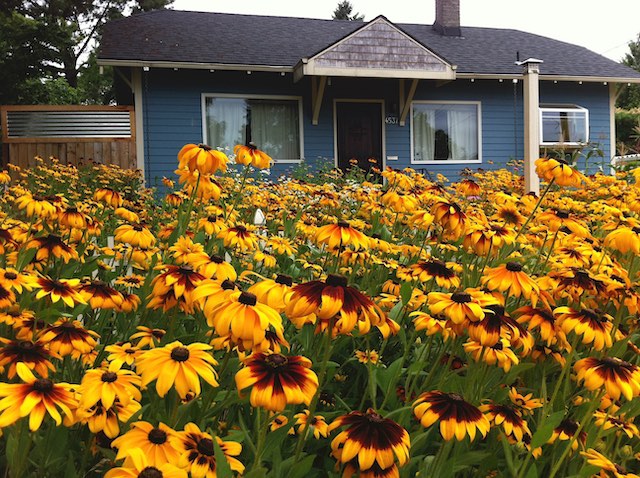
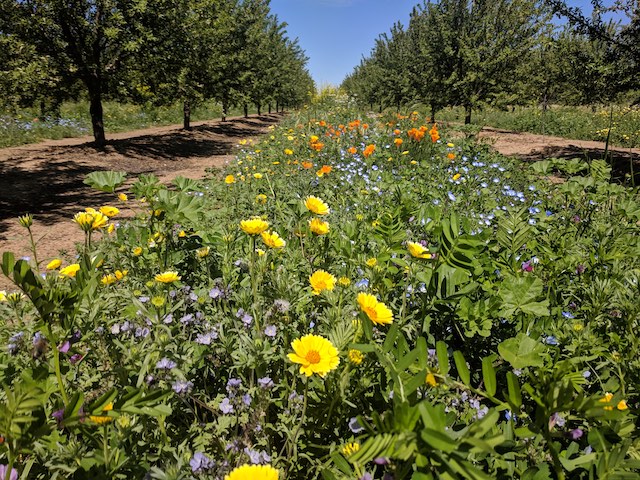
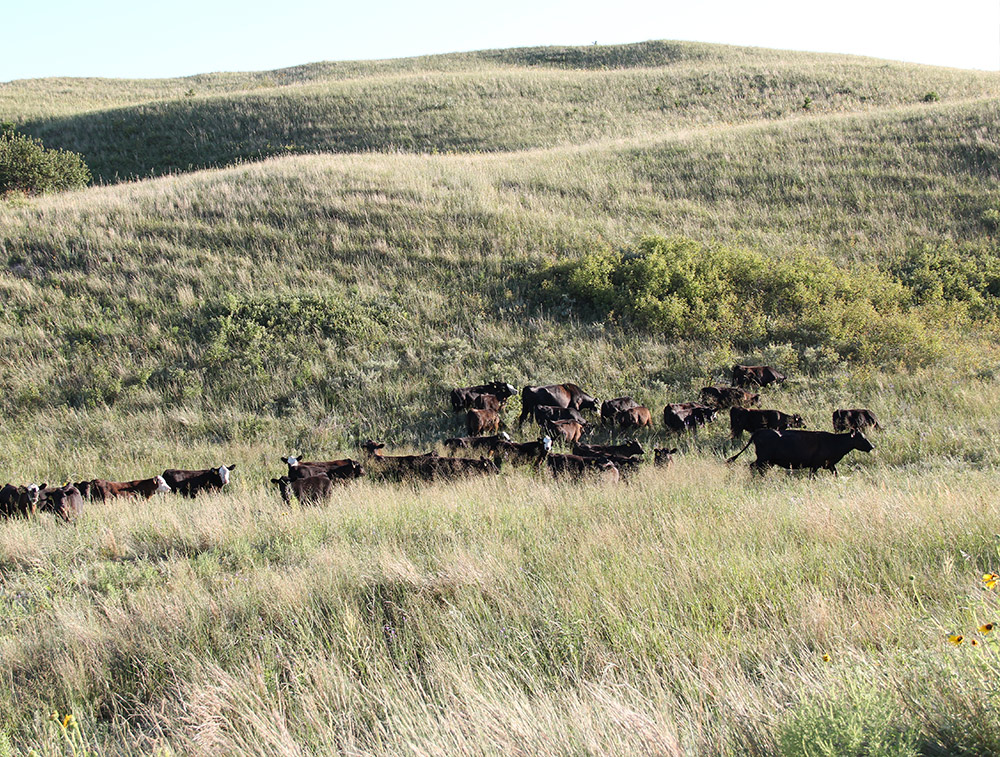
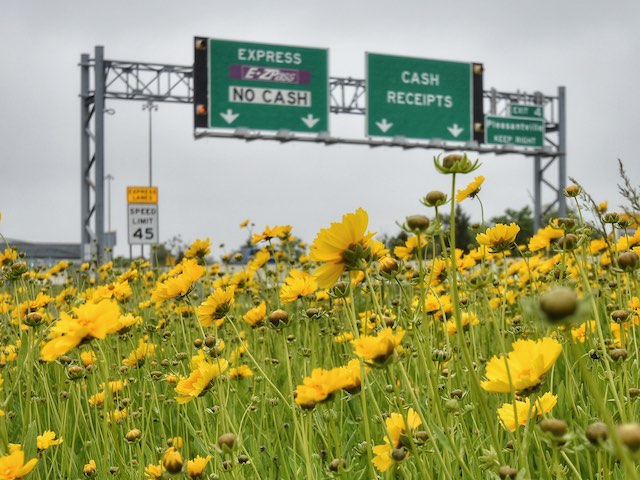
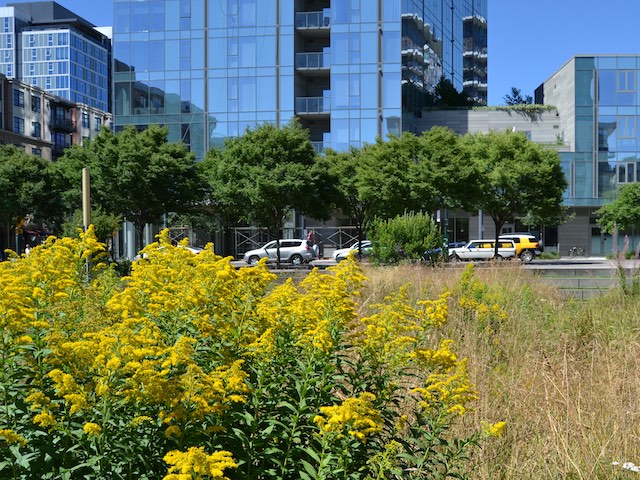
-2.jpg)
